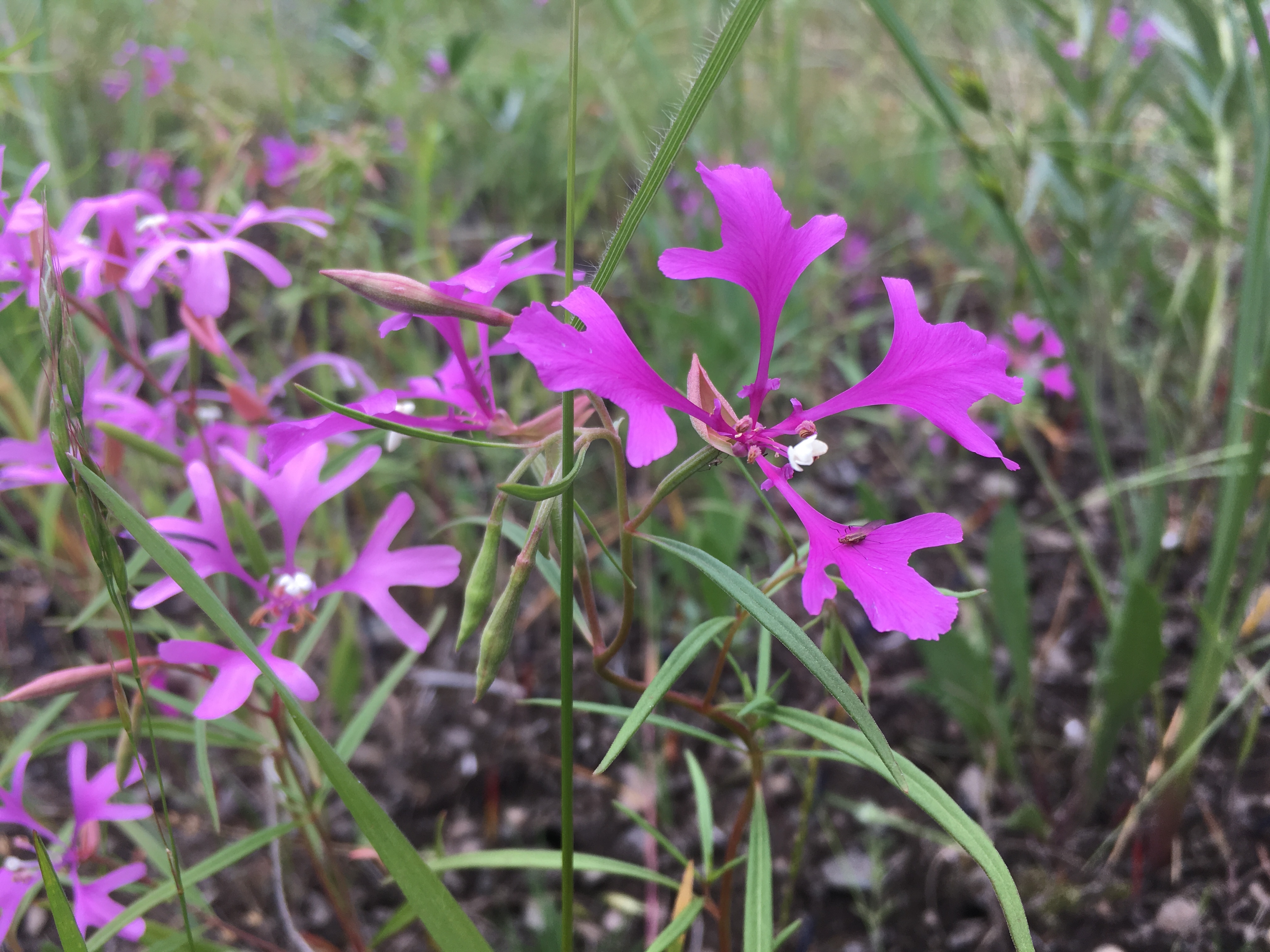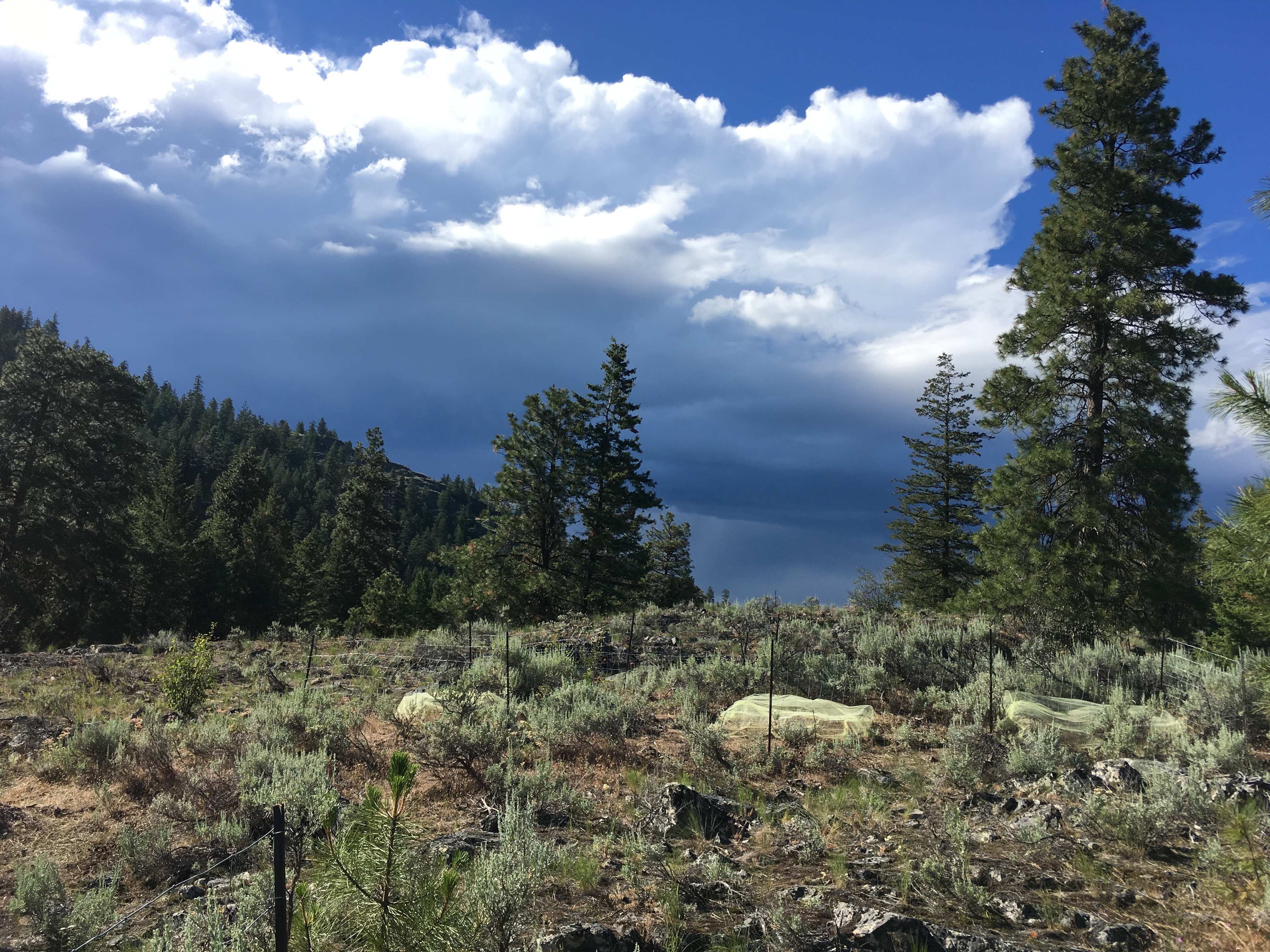Join


If you are interested in joining the lab, please read the information below and then get in touch via email (m.bontrager [at] utoronto [dot] ca). Prospective grad students and postdocs: please include an explanation of why my group is a good fit for your research interests (I am unlikely to reply to emails that don’t address this).
Work in the lab focuses on drivers of local adaptation and geographic range limits, in western North American systems as well as systems local to Toronto (TBD!). The lab is set up for field, greenhouse, and growth chamber experiments. These approaches can be complemented with data synthesis and genomic tools (in collaboration with the strong plant genomics groups here at U of T).
Our group values diversity and community. We work to actively create an environment where everyone feels supported to be curious, learn new skills, and do projects that they are excited about. I am very happy to hear from students and researchers who are members of groups that have not historically been supported/included in academic science.
Prospective undergrads:
Hands-on undergraduate work in the lab primarily occurs through work-study positions, credit-based opportunities (e.g., ROP, REP, EEB397, EEB497, EEB498), and summer research fellowships (e.g., USRAs). Work-study opportunities will be advertised on CLNx.
If you are interested in joining the group as an undergraduate, please contact me by email with brief responses to the following prompts in addition to a resume and an unofficial transcript.
- Please briefly describe your most relevant experience (course experience, research experience, work experience, etc). Note that this can be broad (e.g., organizational skills learned in a non-research job, favorite class activities). You are welcome to get in touch regardless of whether you have previous experience with academic research.
- Why are you interested in research and in this lab?
- What types of skills and experiences would you like to gain?
Prospective grad students:
Note: My lab is currently near capacity. I am only likely to encourage applications from students with extensive previous experience with field work in plant ecology/evolution (e.g., transplant experiments or environmental manipulations in plant populations) who are interested in applying this experience to studying geographic range limits.
My goal as a supervisor is to help students formalize their interests into hypothesis-driven research projects, to aid students in progressing towards the next step of their career, and to support students as they build the skill sets that their graduate research projects and future careers require. Students can work in lab systems or branch out, and can work on projects I have come up with or those of their own design (or most likely something in between).
I am seeking students who are curious, hard working, self-motivated, and excited to contribute to a positive lab and departmental community. Students should have prior research experience in ecology and evolutionary biology. Prospective students should have a clear sense of the work occurring in my lab (see Research and Publications tabs) and some ideas of how they would like their graduate work to relate to the major themes we work on.
If you’re interested in working with my group, please get in touch via email before submitting an application to the program. Indicate whether you are interested in an MSc or PhD, and include brief responses (about one paragraph each) to the following prompts in addition to a CV/resume. I typically screen applicants and conduct interviews in the fall.
- Please briefly describe your most relevant experience (research experience, work experience, upper level course experience, etc).
- Why do you want to pursue graduate research and what are your career ideas beyond graduate school?
- What research directions do you find interesting and what types of projects appeal to you? Why do you want to pursue that work in my lab?
- What skills would you like to learn during your graduate work?
You can find information about applying here. Note that applications for the MSc program are only open to domestic students, while the PhD program is open to both domestic and international students. I strongly encourage all applicants to apply for fellowships for which they are eligible, including the NSERC CGS-M (domestic students)
While not specific to U of T and not mandatory reading for prospective students, here are a few resources for applying to grad school in ecology and evolution that may be helpful as you prepare for and navigate the process:
-
Carson et al. 2021: Advice on Applying to Graduate School in Ecology and Evolutionary Biology: How to Prepare and a Step-By-Step Guide.
-
The UC Davis Population Biology Student Diversity Committee has created and compiled many helpful resources that are available on the website of their very cool E & E Grad School Preview program.
-
EEB Mentor Match matches prospective students from minoritized groups with mentors that can help with applications for graduate school and fellowships. They also have some helpful general information and links on their website. Note that they primarily focus on US students and programs, but if you think their program may be useful to you, you should go ahead and request a mentor and see what they can do for you.
Prospective postdocs:
My goal is to support postdocs (intellectually, logistically, materially, and in their career development) as they pursue the scientific questions that they are most excited about and continue to develop independent research programs. If you’re interested in working with my group as a postdoc, please get in touch with a brief description of your research to-date, a brief description of your future research interests (specifically why you would like to pursue them in my lab), and a CV. If our interests seem like a good match, we can meet to discuss funding opportunities. I am not currently hiring postdocs from my grant funds, however there are a number of fellowships that can support postdocs at U of T; some are listed below.
-
EEB Postdoctoral Fellowship: This is a departmental position, with the potential to collaborate across labs and an emphasis on facilitating interactions within the department. Calls for applications happen in fall/winter most years.
-
Banting Postdoctoral fellowships: This national competition is open to both domestic and international applicants.
-
NSERC postdoctoral fellowships: This national competition is open to Canadian citizens, permanent residents, and protected persons that are within 2 years of completing their PhD.
-
Liber Ero fellowships: These fellowships are for postdocs whose research has an applied conservation focus in Canadian systems. Liber Ero fellows are co-mentored by conservation practitioners. This competition is open to both domestic and international researchers.
-
U of T Provost’s fellowships: This university-wide competition is open to Black and Indigenous researchers, both domestic and international.
-
Arts and Science Postdoctoral Fellowship Program: This is a university-wide competition open to both domestic and international researchers.